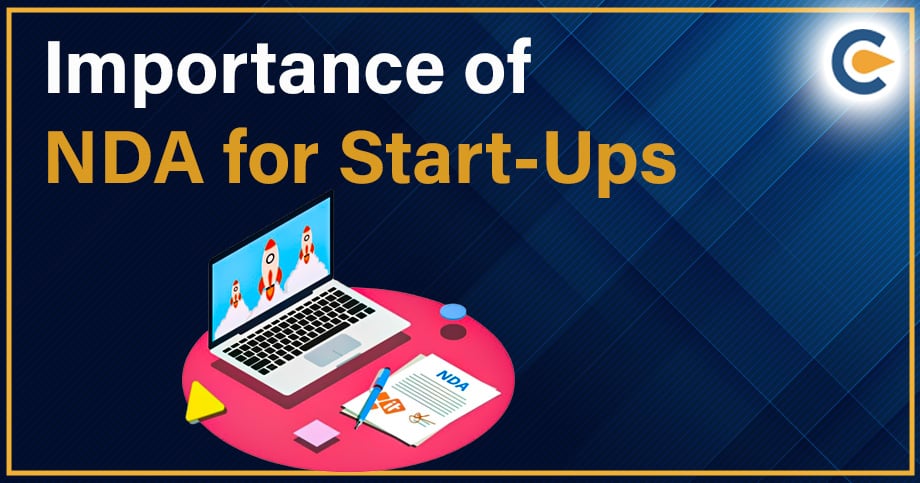An NDA (Non-Disclosure Agreement) is one of a start-up’s most sought-after legal documents. Not just for intellectual property rights but also to maintain internal business models and ensure safe operation. You may find comprehending the NDA and its other components challenging. It’s also important to remember that NDAs have their restrictions. It is essential to keep your company’s confidential information a secret, especially in the beginning.
Overview of NDA
A legally binding document known as an NDA is used to safeguard your intellectual property[1] (IP) and other confidential information. They typically prohibit the signee from disclosing or using the specified data for their benefit. In case of a contract breach, you or your business may file a lawsuit to end future violations or recoup losses.
NDA can protect only particular types of information for start-ups. For instance, your core business concept is not private or proprietary information. Your ideas are not confidential if you present them at networking gatherings.
Your business secrets are something you can safeguard: highly technical procedures, business strategies, lines of code, or other distinctive and significant intellectual property assets.
NDAs are legal documents, but their effectiveness depends on your willingness (and financial capacity) to enforce them through litigation. Nevertheless, they are crucial for establishing a climate of discretion and discouraging careless conversation.
How does a Non-Disclosure Agreement work?
Any time-sensitive information is revealed to potential creditors, employees, advisors, clients, or suppliers—or to any other parties who require access to the business’s sensitive data—an NDA for Start-ups is typically used.
Confidentiality agreements that are in writing and have been signed by all parties can increase trust in these kinds of negotiations and discourage intellectual property theft. The non-disclosure agreement will specify the precise nature of the confidential information. Some NDAs for start-ups will indefinitely obligate a signer to secrecy, prohibiting them from ever disclosing the agreement’s proprietary information. Without such a written contract, any information disclosed in a trust may be misused or unintentionally made public.
The agreement specifies the consequences of breaching an NDA, including monetary damages for lost revenue, business opportunities, or even legal action.
What kinds of NDAs are there?
NDAs are of three types: Unilateral, Bilateral and Multilateral NDAs.
Unilateral NDA
This instructs the individual or business receiving the information that they are not permitted to disclose, share, or release that information. The receiving party must protect the information by signing the NDA for Start-ups. Both parties sign the same document.
Bilateral NDA
You’ll need a Mutual NDA to permit two parties to exchange information freely. This obligates both parties to maintain the confidentiality of one another’s data. Each party may draft a Mutual Non-Disclosure Agreement for the other to sign if your company exchanges sensitive information with an individual or another business.
Multilateral NDA
In this, two or more parties are involved, out of which one party discloses some information, and the other remaining parties promises to keep the data safe and protected from any further disclosure.
What are NDA for Start-ups
A standard NDA should be available to all start-ups so they can use it to safeguard confidential information about their business. Depending on your business and the data you’re trying to protect, you’ll need to decide when and where to use it. An NDA for Start-ups should be signed by anyone who deals with confidential information or who might know it.
Independent businesses
The use of an NDA by independent contractors who work for your business is arguably the most prevalent and crucial scenario. These people are not subject to the same social and contractual obligations as regular workers but might still interact with sensitive data at work. Before you start a relationship with any contractors or freelancers, it’s a good idea to sign an NDA.
Partners
It’s a good idea to have them sign an NDA for Start-ups if your company outsources parts of its process to outside vendors or if you are working closely with another company on a joint initiative to ensure they don’t misuse confidential information.
Cofounders
Theoretically, you should be able to trust the people you started your business with. However, circumstances can alter as your business becomes more (or less) successful. Those with the most access to the company’s intellectual property should sign NDA for Start-ups if they decide to leave or try to find a competing business.
Employees
NDAs are a requirement for some businesses, but not all. Your standard employment agreement may cover similar information about company ethics and privacy. It would be a good idea to have them sign one if you have staff members who frequently deal with sensitive data. If another business steals them, this will defend you.
aspiring personnel
If late-round interview candidates have access to any confidential internal procedures or information during the hiring process, you should have them sign an NDA. This is especially true when filling higher-level positions like CEO or CFO, where the applicant might come from a rival business.
Uses of NDA for Start-ups
Business owners frequently have to talk with strangers about confidential or sensitive information. When looking for investment, potential business partners, new customers, or key employees, sharing information is essential. NDAs have long been a legal framework to uphold trust and prevent important information from leaking out where it could undermine the inherent profitability of that content. They are used to protect the person or people with whom this information is shared. Secret recipes, proprietary formulas, and manufacturing procedures are a few examples of information for which start-up companies may need to sign an NDA. Protected information frequently lists customers or sales representatives, non-public accounting data, or any other specifics that distinguish one business from another.
For instance, a start-up business seeking funding from venture capitalists or other investors might worry that their brilliant idea will be appropriated in exchange for money instead of being invested. A signed NDA for Start-ups helps prevent this kind of idea theft. With one, it might be easier to demonstrate that an idea was stolen.
To prevent them from ever disclosing the sensitive information they will be handling, a company hiring outside consultants may require those individuals to sign an NDA. When working on new projects that have yet to be made public, full-time employees may also be required to sign an NDA for Start-ups because the effects of information leakage could harm the project’s value and the company.
Conclusion
Non-disclosure agreements are a crucial part of the legal framework used to prevent the recipient of sensitive and confidential information from disclosing it. These documents are used by businesses and start-ups to protect their innovative ideas from being appropriated by the parties they are negotiating with. Anyone who violates an NDA will face legal action and penalties equal to the value of their lost profits. Even criminal charges could be brought. NDA for Start-ups can be mutual, where both parties agree not to share each other’s sensitive information, or unilateral, where only the data recipient is required to remain silent.
Read Our Article: Non- Disclosure Agreement










